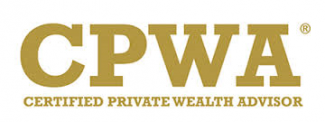
Estate Planning
by Mario Yngerto on Oct 29, 2014
Your estate is your property and your debts -- in other words, your net wealth. Estate planning is a way to help control and manage your estate during your lifetime and after you die. Although you "can't take it with you," you can certainly take steps to get maximum benefit from your assets now and decide how they will be used later. With an estate plan and different types of trusts, you can be certain how your wealth will be distributed after you're gone, but you can also lower your tax bills and reap other financial benefits while you're still alive. There are many components to an estate plan, including wills, gifts, beneficiary designations and powers of attorney, but we'll focus on the most important and complex facet of estate planning: trusts. A financial advisor can help you sort through the dozens of trusts available to you, each one optimized for a particular purpose.
Trusts 101
A trust is an arrangement in which you, the grantor, turn over assets to another party, the trustee, who manages the assets on behalf of one or more beneficiaries. Two important motivations for setting up a trust are to reap tax benefits and to control the assets should you die or no longer can function competently. It is the job of the trustee to take title to the assets in the trust and then manage those assets for the benefit of the beneficiaries. You must pay the trustee for services rendered and for expenses, but the trustee can't otherwise benefit from any income generated by the trust, because that would be self-dealing, which is illegal.
You need to select a trustee carefully so that you know your assets will be handled honestly and responsibly. Trustees can be individuals, trust companies or other types of entities. Often, trusts are used in conjunction with wills to control how assets are distributed after you die. Frequently, a wealthy family member sets up a trust to benefit heirs such as a surviving spouse, children and grandchildren, but trust beneficiaries do not have to be relatives of the grantor. A financial planner will explain to you how to structure a trust to yield maximum tax benefits.
Simple Trusts
In a simple trust, sometimes called a bare trust, the annual net income earned by the trust is fully distributed and/or taxed each year. The beneficiary is liable for the income taxes on trust income, whether that income accumulates in the trust or is distributed. The trust receives a tax deduction on the income it distributes to beneficiaries. A simple trust's beneficiaries can't be charities. The assets of the simple trust are usually distributed to the beneficiaries right after the grantor dies. Speak to your financial planner to learn whether a simple trust makes sense for you.
Living Trusts
A living, or revocable, trust is a simple trust that the grantor can modify during his lifetime. The grantor can add or remove assets and make other changes as he sees fit, including dissolving the trust and reclaiming the assets. When the grantor dies, the living trust can bypass probate and be quickly distributed to the beneficiaries. Many folks set up living trusts in order to avoid the expenses of creating a will. Another benefit is that living trusts can remain private, whereas wills must be publicly disclosed when you die. Often, living trusts are set up to become irrevocable upon the grantor's death, making them suitable as vehicles to distribute an estate to the desired beneficiary. Alternatively, you can make yourself trustee of your own living trust. Bear in mind that a living trust will not protect your assets from creditors and will not reduce your estate taxes. Often, revocable trusts are used when the grantor can no longer manage his own affairs.
Irrevocable Trusts
As its name implies, a grantor can't change an irrevocable trust once it's established. These trusts acts a estate tax shield for the very wealthy, but most folks don't need this protection, since the first $5.3 million of your estate is exempt from federal estate taxes. A more popular reason for establishing these trusts is to provide for disabled dependents or to shield assets from liability judgments or creditors. However, you can't shield assets once you run into financial difficulties -- then it's considered a fraudulent conveyance. Choose your trustee carefully, because you give up control once you set up the irrevocable trust -- you have no power to change trustees.
It's best to work with a qualified financial planner to help you understand how an irrevocable trust works in your state. Many special-purpose trusts are irrevocable, but also have other provisions that handle goals like funding charities or bequeathing assets to your grandchildren instead of your children.
If you have more questions, call the team at Genesis Wealth Management for your first complimentary consultation, or call 214-550-1394.




